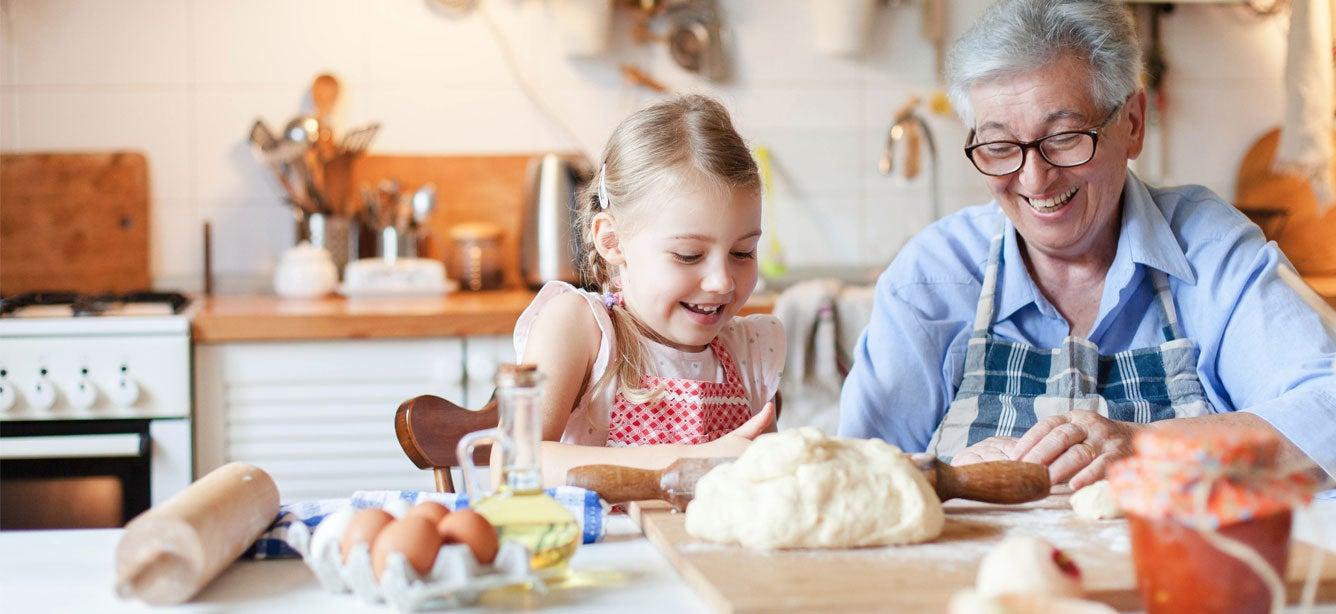
When John Donne wrote that “no man is an island,” he recognized that our lives do not happen in isolation. Human connections are vital; people do poorly when they are isolated from one another as current research shows. Nearly every aspect of our lives—from the mundane (like buying groceries) to the more profound (like attending a wedding)—relies on an interconnected web of people. And the experiences that we have interacting with others leave an imprint on our lives that shapes who we are.
Yet, in today’s technology-driven world, maintaining those meaningful connections can be a challenge. Even with the instant gratification of social media, texting, and video calls, many of us still feel isolated or disconnected. How can we better foster fulfilling bonds in our lives?
Yet, over the past year, many people have lived in isolation or semi-isolation due to the COVID-19 pandemic. It’s been challenging to connect with one another in meaningful ways. And while we’ve all gotten creative about finding ways to stay in touch, from talking to one another through windows to having video conversations, there is no substitute for direct human interaction. Pandemic fatigue is real, as outlined by the Greater Good Science Center, and pandemic fatigue has caused some individuals who were already isolated to withdraw more from society. Even with vaccine availability opening the door to more “normal” interactions, many are struggling with how to reconnect after a year of so many challenges and changes.
The power of gratitude in improving connectedness
Gratitude offers a way to reconnect with our family, with our friends, and with our communities. Why gratitude? For one thing, being grateful for another person automatically means remembering that we are social beings and that we need each other. It reconnects us instantly to one another and to the world around us.
Expressing gratitude in an introspective way is wonderful, but expressing it to another person is perhaps even better. As William Arthur Ward wrote, “Feeling gratitude and not expressing it is like wrapping a present and not giving it.”
Practicing gratitude also helps us manage life’s difficulties with grace. With age, we experience losses and everyday annoyances that can frustrate us or make us sad, angry, or even resentful. Adopting an attitude of gratitude means tackling the negative things and challenging ourselves to find ways to be grateful for them. Even in the face of grief and hardships, there are still bright spots. Gratitude cannot repair every loss, of course, but it can help us connect with others who have experienced similar losses.
How gratitude can improve our health and well-being
Feeling and expressing gratitude doesn’t just make us smile inside; it also has a positive impact on our health and well-being. When people have higher levels of gratitude, they tend to:
- Be more socially connected
- Handle stress better
- Have lower levels of depression
- Sleep more soundly
- Have improved biomarkers (e.g., higher levels of “good” cholesterol)
One study showed that practicing gratitude for 15 minutes a day, five days a week (for six weeks or more) can improve mental wellness and create a positive shift in perspective.1
All of these positives could help counteract the dangerous effects of loneliness and social isolation, which affects one in three adults age 50 to 80 according to the National Poll on Healthy Aging.2
How to introduce practicing gratitude into your daily routine
The best way to practice gratitude over time is to build it into your routine as a habit, much the same way that you make brushing your teeth a daily habit.
Here are a few tips to both make gratitude a daily habit and to use gratitude as a way to reconnect with others:
- Write thank-you notes to people who have made a difference in your life. The words thanks and think are directly related. When you thank someone, you are truly thinking of them.
- Make a small gift for someone who has helped you out, whether it was recently or several years back. It’s never too late to show gratitude.
- Do a random act of kindness for someone you don’t know.
- Acknowledge the work of a colleague or a fellow volunteer.
- Offer to help with a task that you know your friend, family member, or neighbor does not like doing.
- Donate your time to an organization you are thankful for and use that time to reconnect with others in your community.
- Take a photo of something that makes you smile and send the photo to your loved ones explaining why the object makes you feel grateful. Ask them to share a photo with you of something that makes them feel grateful.
- Similarly, share a positive or interesting news item with your loved ones explaining why the news item makes you feel grateful. Ask them to share positive news items with you that make them feel grateful.
Practicing gratitude in small ways reaps dividends over time. If you like the feeling you get when you express gratitude to others, consider keeping a gratitude journal for yourself. A journal helps you watch your gifts accumulate over time which can be a source of both inspiration and solace in your life.
Gratitude grounds us in life and helps us be mindful of our place in the world and our connections to others. If you’re struggling to make social connections right now, try using gratitude as a way to reconnect.
Sources
1. Ernst T. Bohlmeijer, et. al. Promoting Gratitude as a Resource for Sustainable Mental Health: Results of a 3-Armed Randomized Controlled Trial up to 6 Months Follow-up. Journal of Happiness Studies. May 7, 2020.
2. University of Michigan - National Poll on Healthy Aging. Trends in Loneliness Among Older Adults from 2018-2023. Found on the internet athttps://www.healthyagingpoll.org/reports-more/report/trends-loneliness-among-older-adults-2018-2023
